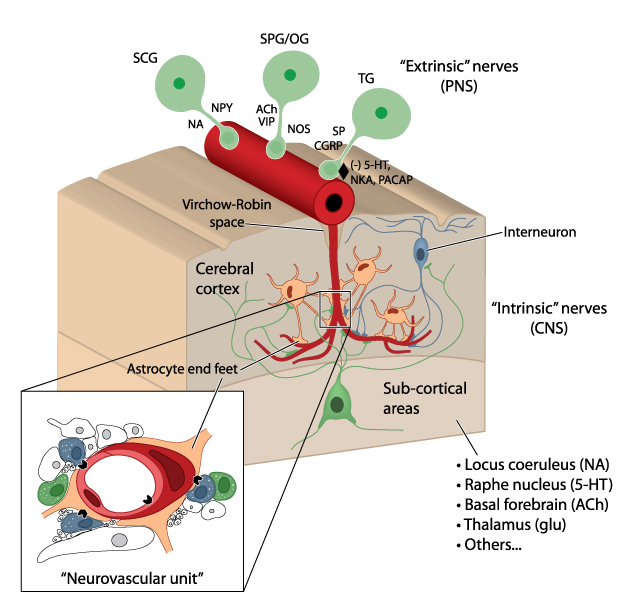Amyloid Plaques Found To Build Up Around Brain’s Blood Vessels Involved in Alzheimer’s Disease
Written by |

Amyloid plaques impair astrocyte function to regulate brain vessels’ blood flow in Alzheimer’s disease. These are the findings from a study entitled “Vascular amyloidosis impairs the gliovascular unit in a mouse model of Alzheimer’s disease,” published in the journal Brain.
In this study, the researchers investigated the role of astrocytes, star-shaped specialized glial cells in the brain and spinal cord that play key functions in the brain. “Astrocytes serve many support functions, such as shuttling nutrients from blood vessels to nerve cells or removing their waste products. They also control the diameter of blood vessels to assure proper nutrient and oxygen delivery to the brain and maintenance of the blood-brain barrier. In response to injury and disease, however, astrocytes become reactive and change many of their supportive properties,” Harald Sontheimer, director of the Center for Glial Biology in Health, Disease, and Cancer at the Virginia Tech Carilion Research Institute and study lead author, explained in a press release.
Sontheimer’s team found that the accumulation of amyloid plaques in the brain, the characteristic symptom of Alzheimer’s patients, disrupts the brain’s blood flow, which is regulated by astrocytes. “We found that amyloid deposits separated astrocytes from the blood vessel wall. We also found that these amyloid deposits form an exoskeleton around the blood vessels, a kind of cast that reduces the pliability of the vessels,” explained Stefanie Robel, study co-first author and a research assistant professor at the Birmingham School of Medicine, University of Alabama. This means that amyloid deposits around blood vessels decrease their elasticity, slowing down blood flow. Vascular amyloid buildup, a condition known as exoskeleton, may explain why Alzheimer’s patients experience impaired memory, decision-making, and personality changes.
As Sontheimer noted, “Vascular amyloid may be the culprit in Alzheimer’s disease symptoms, especially considering that the amyloid exoskeleton might limit the supply of oxygen and glucose to the brain regions that need them most. This could also explain the cognitive decline in people with Alzheimer’s disease, as the disease is associated with reduced cerebral blood flow.”
Now, the team wants to understand exactly how vascular amyloid plaques impact the progression of Alzheimer’s disease, and if its buildup during early and later stages has different consequences in disease outcomes.





